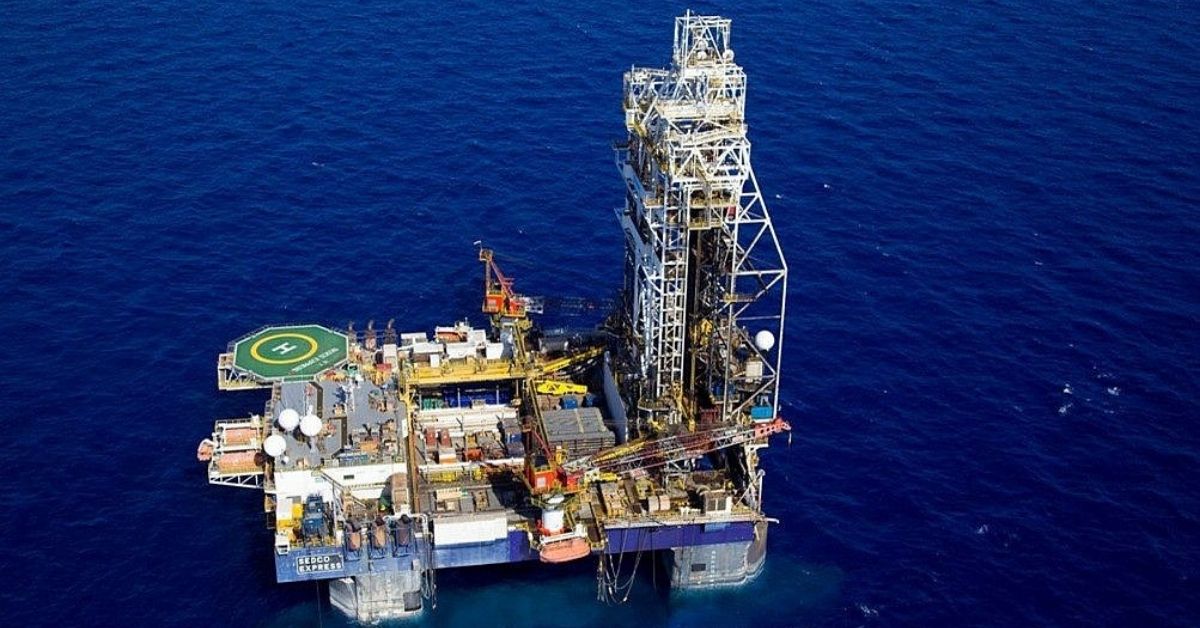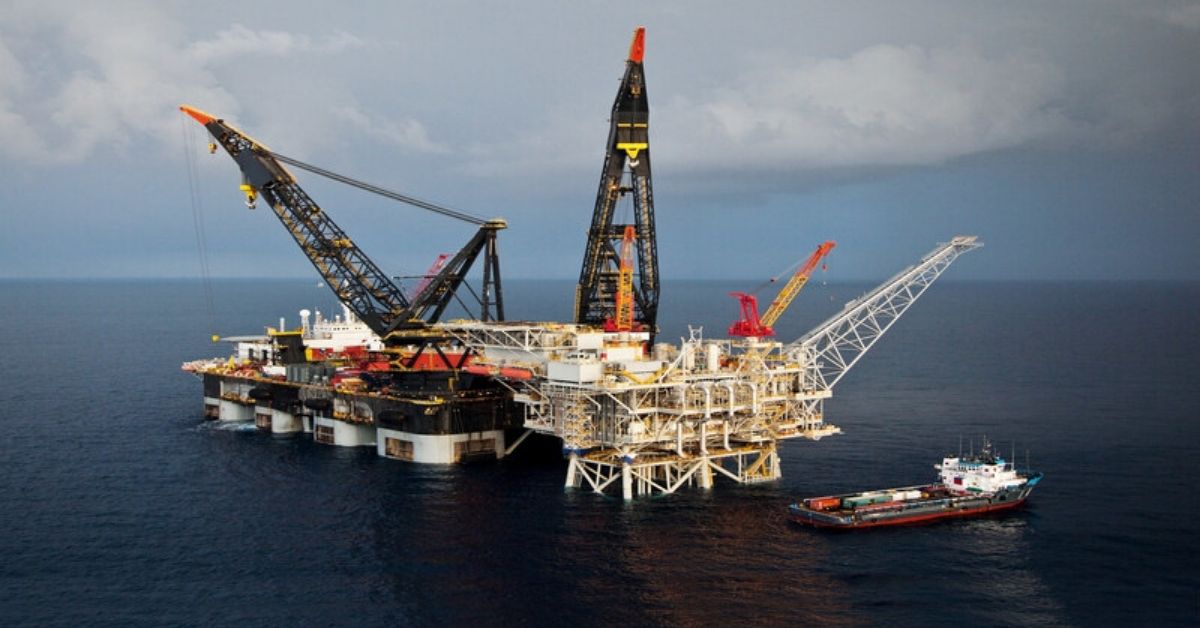GAZA CITY — The Israeli Ministry of Energy has taken the initiative to suspend gas supply from the Tamar field, located 20 kilometers off the coast of Ashkelon, due to security concerns. According to estimates from Israeli media, this decision could result in weekly losses amounting to hundreds of millions of dollars for the energy and gas sector.
The Tamar field is operated by the American Chevron Oil Company. The Israeli Ministry of Energy announced last Tuesday that Chevron had halted the export of natural gas via the Eastern Mediterranean Gas (EMG) sea pipeline, which connects Israel and Egypt. Instead, Chevron has opted for an alternative pipeline route through Jordan.
Israel has implemented stringent security measures around its offshore gas fields in response to the interruption of gas flow from the Tamar field, attributed to the potential threat of a missile attack from the Gaza Strip. This field has previously been targeted, causing disruptions for several days, with the most recent incident occurring in May 2021.
In a bid to prevent substantial losses in the gas and energy sectors, the Israeli government has granted Energy Minister Yisrael Katz the authority to declare a state of emergency in the natural gas market for the next two weeks, effective during the first week of the conflict. This declaration will allow for the supply of gas that does not adhere to contracts signed with Israeli and Egyptian companies, ensuring the operation of all power plants in Israel.
At a glance Gas Supply Suspension: Israeli Energy Ministry halts Tamar field gas supply. Chevron's Alternative Route: EMG pipeline halted, Jordan route chosen. Security Measures: Offshore gas fields secured amid Gaza threat. Emergency Declaration: Minister Katz authorized to ensure gas supply. Billion-Dollar Deals: ADNOC and BP's offer in jeopardy. Gas Exports Reduction: Israel faces challenges during Gaza conflict. State of Emergency: Gas market measures to tackle shortages. Alternative Fuels: Power plants prepare for energy stability. Investment Delays: Gas field developments impacted by ongoing war. Future Gas Production: Plans to boost production in the Tamar field. Local Market Priority: Allocation for Israel's gas consumption. Geopolitical Impact: Gas exports enhance regional relations. Infrastructure Disruption: War threatens gas pipeline projects. LNG Facility Considered: Chevron explores liquefied natural gas. Attracting Investment: Concerns over slowdown in gas field investments.
In addition to the state of emergency, the conflict in Gaza has raised concerns regarding the fate of several billion-dollar deals within the Israeli energy and gas sector. One such deal involves an offer from the Abu Dhabi National Oil Company (ADNOC) and the international energy company BP to purchase 50 percent of the shares of participating units in the Israeli company “NewMed Energy” for a total of approximately $1.8 billion.
Gas exports
Israeli gas exports are expected to see a reduction. As the Israeli-Ahas war enters its second week, the Israeli energy and water sectors are grappling with challenges related to maintaining consistent gas and water supplies to the Israeli market.
The declaration of a state of emergency in the gas market implies a substantial decrease in Israeli gas exports to Egypt and Jordan, as explained by Sheni Ashkenazi, an energy correspondent for the Calcalist newspaper. Ashkenazi points out that if there is a gas shortage in the Israeli market, the government has the authority to terminate contracts with gas companies and allocate gas quantities to the market in an unconventional manner, including reducing exports as needed.
Ashkenazi notes that in the absence of gas extraction from the Tamar field, the Vitan and Karesh Tanin gas fields are now being utilized to provide the local economy with gas. She also highlights that the energy and gas requirements of the local Israeli economy have significantly decreased due to reduced economic activity during the war, eliminating the need to use diesel instead of gas.
The newspaper Calcalist reports that the Israeli Ministry of Energy is preparing to operate power plants with more polluting fuels such as coal, fuel oil, and diesel in case of gas shortages and supply issues from the Levitan and Wakari Shatanin fields. This measure aims to ensure a constant energy supply when necessary.
In terms of potential losses in the Israeli energy sector, investments in natural gas in Israel face significant risks. The ongoing war has made it increasingly challenging for Israel to establish itself as a hub for natural gas exports to Europe and other destinations.
According to the same newspaper, in August 2023, the Israeli government approved a decision to increase gas production from the Tamar field by 60 percent starting in 2026. This move is intended to secure consistent gas supplies to the Israeli economy until 2048 and facilitate gas exports to Egypt via the Tamar field.
The Israeli Ministry of Energy has described this step as “significant” and expects it to boost state revenues, strengthen the Israeli economy, and improve political relations between Israel and Egypt.

According to Sonia Gorodesky, an economic affairs correspondent for Israel Today, approximately one-third of the planned increase in production capacity from the Tamar field will be allocated to the local market. This increase is anticipated to cover 15-25 percent of Israel’s current natural gas consumption, with the flexibility to redirect all additional production to meet local needs in emergency situations.
Gorodesky also emphasizes that gas exports play a crucial role in expanding production capacity, generating substantial revenue, and enhancing energy relationships with Egypt and other regional countries. This, in turn, bolsters Israel’s political and geopolitical standing.
Investment delays
Investment in gas field development is currently facing delays. As reported by The New York Times, Chevron Oil Company has been working on a plan to increase production in the Levitan and Tamar fields and add pipelines to boost gas flow from Israel to Egypt, primarily in the form of liquefied natural gas (LNG). However, the ongoing war threatens to disrupt these infrastructure projects related to gas pipelines in Israel.
Stanley Reed, the newspaper’s energy correspondent, notes that Chevron is also contemplating the establishment of a floating facility for liquefied natural gas processing in Israeli waters, a project that could incur billions of dollars in costs.
Reed expresses concern, saying, “There is a fear that the war will slow down investments in gas fields in the region. Furthermore, it could hinder Israel’s efforts to attract more international energy companies for gas exploration.”








